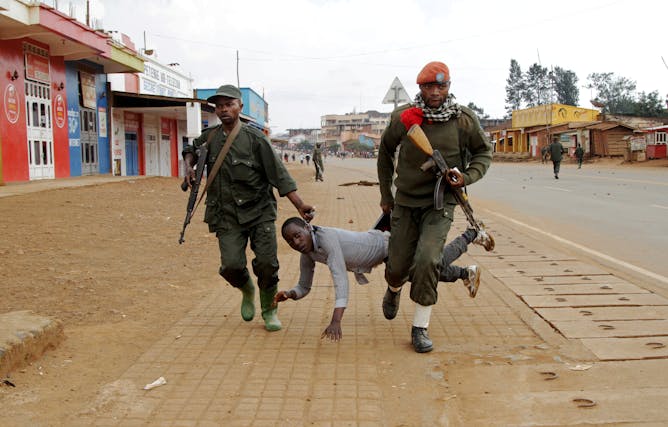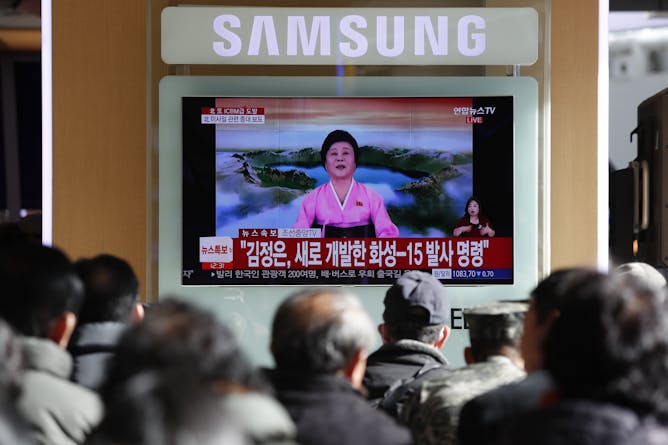|
The Democratic Republic of Congo has been in a state of perpetual political turmoil for the past two years. President Joseph Kabila remains in power even though his constitutional term ended 12 months ago; presidential and legislative election deadlines have passed. And as the year draws to an end, writes Reuben Loffman, there seems to be little hope of a resolution to the major crises that have been intensifying.
There have been some recent signs that China is getting tougher on its troublesome neighbour North Korea. But Beijing has not used many levers at its disposal to challenge Kim Jong-un’s regime. Anny Boc argues that this is because political collapse in North Korea would bring chaos and refugees to China’s border. It would also induce an important foreign policy shift for Beijing in north-east Asia. And such interests are all related to one main actor: the US.
|

Congolese soldiers arrest anti-government protester in North Kivu province.
Kenny Katombe/Reuters
Reuben Loffman, Queen Mary University of London
President Joseph Kabila was supposed to step down at the end of his term in 2016. By clinging on to power he threw the Democratic Republic of Congo into a vicious cycle of deadly conflict.
|

South Korean people watch a live TV report showing North Korea’s special announcement that it has successfully tested an intercontinental ballistic missile (ICBM) at a station in Seoul, South Korea, 29 November 2017.
EPA-EFE/KIM HEE-CHUL
Anny Boc, Freie Universität Berlin
China is reluctant to be more active in dealing with Pyongyang for fear of consolidating the US take over in the region.
|
Science + Technology
|
-
Tammy Horton, University of Southampton; Andreas Kroh, Natural History Museum Vienna; Leen Vandepitte, Flanders Marine Institute
The sea remains the least explored habitat on our blue planet.
-
Elizabeth Martin-Silverstone, University of Bristol
Researchers use CT scanners to take first look inside pterosaur eggs.
-
Maria Avxentevskaya, Max Planck Institute for the History of Science
We’ve only travelled into space in the last century, but humanity’s desire to reach the moon is far from recent.
|
|
Arts + Culture
|
-
James Rodgers, City, University of London
The BBC's former correspondent in Gaza reviews Donald Macintyre's Gaza: Preparing for Dawn.
-
Vashna Jagarnath, Rhodes University
Russian revolutionary Nadezhda Krupskaya, like other leading women in the new Stalin-led state, was marginalised. But in her case, because she was Lenin's widow.
|
|
Politics + Society
|
-
Siphamandla Zondi, University of Pretoria
Zimbabweans have every right to celebrate the end of Robert Mugabe's long and disastrous reign, but they would be wrong to assume that this is the end of their political problems.
|
|
Ethics + Religion
|
-
Zackery M. Heern, Idaho State University
The Baha'i faith originated in Iran and today has 100,000 communities across the globe, including the United States. Here is their history.
|
|